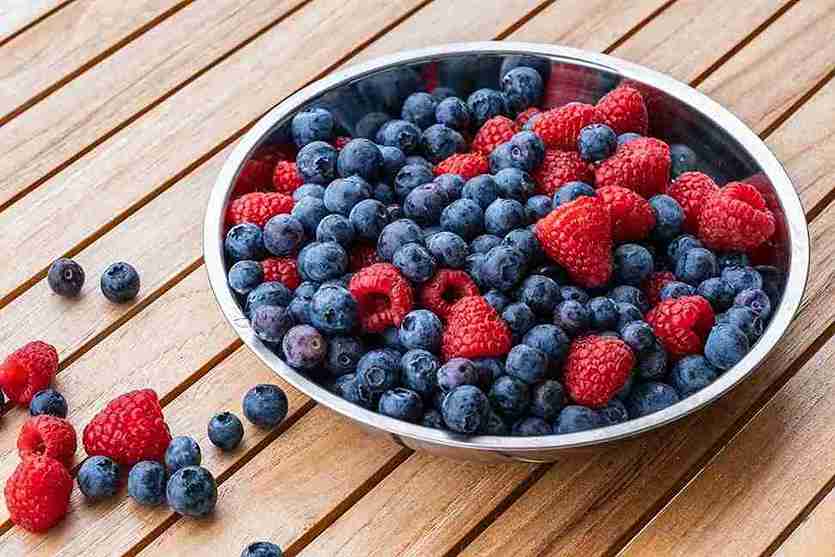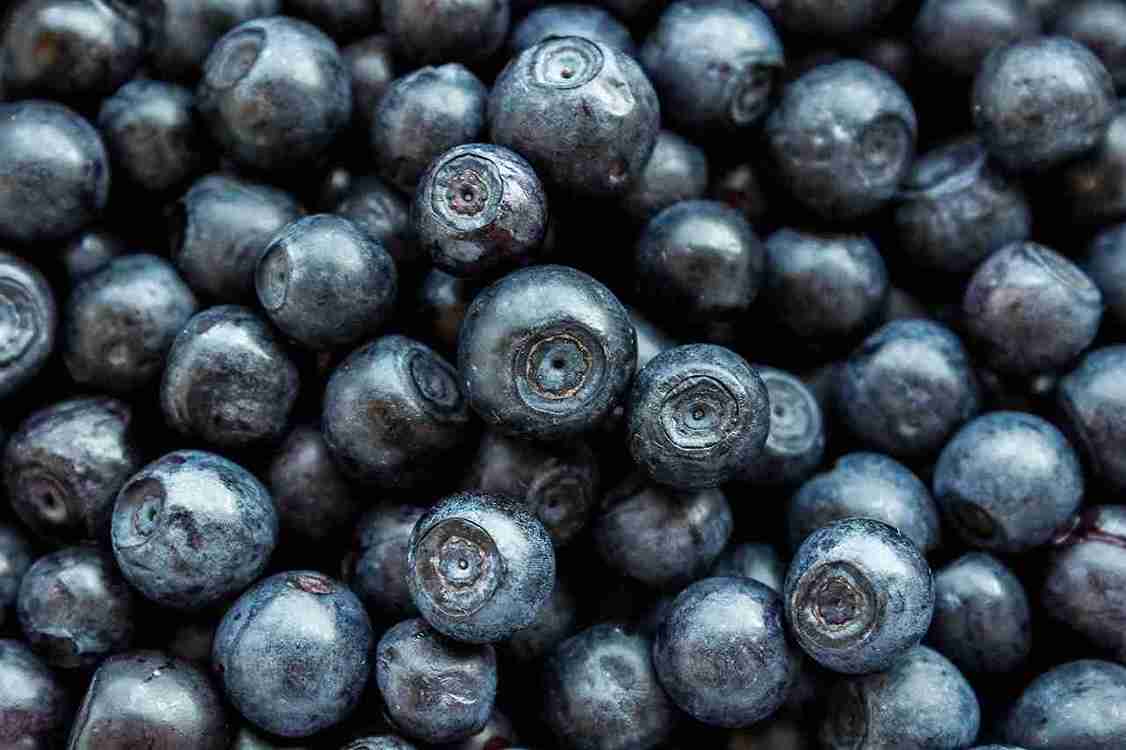Introduction
Tiny yet mighty, berries pack a nutritional punch that’s hard to match. These vibrant, flavorful fruits have long been celebrated for their incredible health benefits, making them a true superfood. From the deep indigo hues of blueberries to the luscious crimson of raspberries, each variety offers a unique blend of vitamins, minerals, and antioxidants that contribute to overall well-being.
In this article, we’ll explore the incredible world of berries, unveiling their remarkable nutritional profiles and the numerous advantages they offer for our bodies. Whether you’re a health-conscious individual or simply looking to add a burst of flavor to your diet, these tiny gems are sure to delight your taste buds while providing a wealth of nourishment.
Nutritional benefits of berries
Berries are nature’s little treasure trove of essential nutrients that contribute to overall health and well-being. These vibrant, flavorful fruits are packed with vitamins, minerals, and antioxidants, making them a true superfood. Let’s delve into the remarkable nutritional profiles of some of the most popular berry varieties and explore their unique health-promoting properties.
Blueberries are undoubtedly one of the most celebrated berries when it comes to their nutritional benefits. These indigo-hued gems are a rich source of vitamin C, which plays a crucial role in supporting the immune system and protecting the body against infections and illnesses. Additionally, blueberries are an excellent source of vitamin K, which is essential for proper blood clotting and bone health. But that’s not all – blueberries are also high in fiber, which can aid in promoting healthy digestion and preventing constipation.
Blackberries, on the other hand, offer a different set of nutritional advantages. These dark purple beauties are a treasure trove of vitamin C, vitamin K, and manganese. Vitamin C is a powerful antioxidant that can help reduce inflammation in the body, while manganese is essential for bone development and maintenance. Furthermore, the high levels of vitamin K in blackberries can support bone health and may even play a role in reducing the risk of osteoporosis.
Moving on to raspberries, these ruby-red delights are a true gem when it comes to their antioxidant content. Packed with ellagic acid, a potent antioxidant, raspberries can help combat oxidative stress and reduce the risk of chronic diseases. Additionally, raspberries are an excellent source of dietary fiber, which can aid in promoting feelings of fullness and supporting weight management efforts.
Goji berries, while lesser-known in the Western world, have been revered in traditional Chinese medicine for centuries. These tiny, reddish-orange fruits are bursting with antioxidants, including zeaxanthin and lutein, which are known for their ability to support eye health and potentially reduce the risk of age-related macular degeneration. Furthermore, goji berries are rich in vitamin C, which not only supports immune function but also plays a crucial role in collagen production, contributing to healthy skin and bones.
Strawberries, a beloved fruit worldwide, are not only delicious but also a nutritional powerhouse. These bright red berries are an excellent source of vitamin C, folate, and manganese. Vitamin C supports the immune system and acts as an antioxidant, while folate is essential for cell growth and development. Manganese, on the other hand, is crucial for bone health and metabolism.
Regardless of your preferred berry variety, one thing is certain – these tiny fruits offer a wealth of essential vitamins, minerals, and antioxidants that contribute to overall health and well-being. By incorporating a variety of berries into your diet, you can reap the benefits of their unique nutritional profiles and enjoy their delightful flavors while supporting your body’s natural defenses and promoting optimal health.

1. Nutritional Powerhouses Packed with Antioxidants, Fiber, and Vitamin C
One of the most remarkable aspects of berries is their high concentration of antioxidants. These powerful compounds help combat oxidative stress, which can contribute to the development of chronic diseases like heart disease, cancer, and Alzheimer’s. By neutralizing harmful free radicals, antioxidants play a crucial role in protecting our cells from damage.
However, the virtues of these diminutive fruit globules extend beyond their nutrient-rich composition; they also constitute an exceptional reservoir of fibrous matter, an indispensable element in fostering an optimal functioning of the digestive apparatus and cultivating sensations of satiety. This fiber-rich content can aid in weight management and help regulate blood sugar levels, making berries a fantastic addition to any diet.
Furthermore, many berries are loaded with vitamin C, a vital nutrient that not only supports our immune system but also contributes to collagen production, which is essential for healthy skin, bones, and joints.
2. Exploring the Specific Health Benefits of Different Berries
While all berries offer a wealth of nutrients, each variety brings its own unique set of benefits to the table. Let’s take a closer look at some of the most popular berries and their specific health-promoting properties.
Blackberries: A Potent Anti-Inflammatory Powerhouse
Blackberries are a true superfood, boasting an impressive array of health benefits. Rich in vitamin C, vitamin K, and manganese, these dark purple gems are known for their potent anti-inflammatory properties. By reducing inflammation in the body, blackberries may help alleviate the symptoms of conditions like arthritis and gout.
Additionally, the high levels of antioxidants found in blackberries, particularly anthocyanins, have been linked to improved heart health and blood sugar regulation. So, whether you’re looking to support your cardiovascular system or manage your diabetes, incorporating blackberries into your diet could be a game-changer.
Blueberries: Brain Boosters and Eyesight Enhancers
When it comes to brain health, blueberries reign supreme. These little blue dynamos are packed with flavonoids, a type of antioxidant that has been shown to improve cognitive function and protect against age-related cognitive decline.
But that’s not all – blueberries are also rich in anthocyanins, which contribute to their brilliant hue and offer powerful antioxidant properties. These compounds have been found to support eye health, potentially reducing the risk of age-related macular degeneration and other vision-related issues.

Raspberries: A Delightful Ally for Weight Management and Anti-Aging
Raspberries are not only a delightful treat for the taste buds, but they also offer a host of health benefits. These ruby-red gems are loaded with fiber, which can promote feelings of fullness and support weight management efforts.
Additionally, raspberries are rich in ellagic acid, a powerful antioxidant that has been linked to anti-aging properties. By combating oxidative stress and inflammation, ellagic acid may help protect our cells from damage and potentially slow the aging process.
Gooseberries: A Vitamin C Powerhouse for Immune Support
While not as well-known as some of their berry counterparts, gooseberries are a true nutritional gem. These tart little fruits are an excellent source of vitamin C, providing a whopping 48% of the recommended daily intake in just one cup.
Vitamin C is essential for immune function, as it helps stimulate the production of white blood cells and supports the body’s natural defenses against pathogens. By incorporating gooseberries into your diet, you can give your immune system a much-needed boost, potentially reducing your risk of illness and infection.
Goji Berries: Ancient Superfoods for Longevity and Immune Support
These crimson, oblong berries have been venerated for millennia within the annals of traditional Chinese medicinal practices, esteemed for their remarkable bounty of salutary properties that confer myriad advantages upon the physical form. These tiny, reddish-orange fruits are packed with antioxidants, including zeaxanthin and lutein, which are known for their ability to support eye health and potentially reduce the risk of age-related macular degeneration.
Furthermore, goji berries are rich in vitamin C, which not only supports immune function but also plays a crucial role in collagen production, contributing to healthy skin and bones.
Ways to Incorporate Berries into a Variety of Diets
With their low-carb, high-fiber profile, berries are an excellent addition to a wide range of dietary approaches. Whether you follow a ketogenic, paleo, or simply a balanced, nutrient-dense diet, there are countless ways to enjoy the deliciousness and nutritional benefits of these tiny fruits.
For those following a low-carb or ketogenic diet, berries can be a refreshing and satisfying snack or addition to smoothies and yogurt bowls. Raspberries, blackberries, and blueberries are particularly low in carbohydrates, making them an ideal choice for those watching their carb intake.
Berries are also a fantastic option for those adhering to a paleo diet, as they are naturally gluten-free, dairy-free, and free from processed ingredients. Why not try a delicious berry-topped paleo parfait with coconut yogurt and crunchy nuts for a nutritious and satisfying breakfast or snack?

Conclusion
Berries are truly nature’s gift – a delightful and nutritious treat that offers a wealth of health benefits. From blackberries’ anti-inflammatory properties to blueberries’ brain-boosting power, each variety brings something unique to the table.
While this article focused on blackberries, blueberries, raspberries, gooseberries, and goji berries, it’s worth noting that other berry varieties like strawberries, cranberries, and acai berries also offer exceptional antioxidant content, fiber richness, and vitamin C goodness.
By incorporating a variety of berries into your daily diet, you can reap the rewards of their incredible nutrient profiles and enjoy their delightful flavors while supporting your overall health and well-being. So, why not start your journey to a healthier, more vibrant life by embracing the power of these tiny superfoods today?
FAQ:
Which berries are best for weight loss?
Raspberries and blackberries are excellent choices for weight loss due to their high fiber content, which promotes feelings of fullness and can aid in calorie control. Additionally, berries are low in calories and high in water content, making them a fantastic snack option for those watching their weight. The antioxidants in berries may also support metabolic health and fat burning.
Are there any precautions when consuming berries?
While berries are generally safe for most people, those with specific dietary restrictions or allergies should exercise caution. Individuals with diabetes may need to monitor their portion sizes due to the natural sugars found in berries. Additionally, some people may experience digestive issues or allergic reactions to certain types of berries, particularly strawberries and raspberries.
How can I incorporate more berries into my diet?
Berries are incredibly versatile and can be easily incorporated into a variety of dishes and recipes. Start your day with a berry-packed smoothie or oatmeal bowl, add them to salads for a burst of flavor and nutrition, or enjoy them as a healthy dessert option with a dollop of yogurt or whipped cream. You can also freeze berries and use them in baked goods or as a topping for pancakes or waffles.
Are frozen berries as nutritious as fresh berries?
Frozen berries can be just as nutritious as fresh berries, as long as they are frozen at peak ripeness. The freezing process helps to preserve the nutritional value of the berries, including their antioxidant content, vitamins, and minerals. When fresh berries are out of season or unavailable, frozen berries can be a convenient and cost-effective alternative.
Can berries help with specific health conditions?
Yes, berries have been studied for their potential benefits in various health conditions. For example, blueberries have been linked to improved brain health and cognitive function, potentially reducing the risk of age-related cognitive decline. Blackberries and raspberries possess anti-inflammatory properties that may help alleviate symptoms of conditions like arthritis and gout. Additionally, the high antioxidant content of berries may support heart health and blood sugar regulation.




